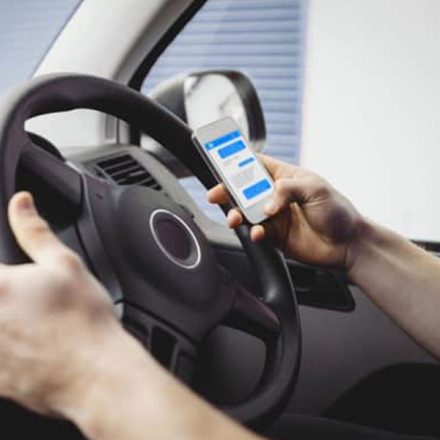Lock, Stock and a Driving Ban
The film Director Guy Ritchie, of Lock, Stock and Smoking Barrels fame, made the news recently for all the wrong reasons when he was disqualified from driving for 6 months under what is known as the “totting up procedure”.
Mr Ritchie pleaded guilty to the offence of using a handheld phone whilst driving. It is not known what was said in his mitigation, but his offence was committed whilst in a stationary line of traffic. Nevertheless, he was fined £666, ordered to pay £166 Prosecution’s costs and his licence was endorsed with 6 penalty points. He had previously accumulated 9 penalty points within the last 3 years so the total was now 15 penalty points. This meant he fell to be automatically disqualified from driving a motor vehicle for a period of 6 months.
The “totting up procedure” refers to a driver accumulating 12 or more penalty points on their licence within a period of 3 years.
For repeat offenders disqualification can be more onerous. A second disqualification under this procedure within 3 years results in an automatic 12 month ban and 2 years if it happens on a third occasion.
Not all driving offences carry penalty points. In respect of those that do there can sometimes be a range of points sometimes available to the Court. This can depend on the nature of the offence, driving history and whether there has been a guilty plea at the first opportunity. Examples of the more common driving offences and the points that apply is as follows:
| Offence | Points |
| Speeding | 4-6 |
| Going through a red light | 3 |
| Using a handheld phone whilst driving | 6 |
| No insurance | 6-8 |
Whereas on conviction points will automatically follow, there can be circumstances where it is arguable that penalty points should not be imposed. Such an argument is referred to as “special reasons” and the experienced lawyer can help you in making such an argument in the appropriate case. Essentially, “special reasons” must be mitigating circumstances falling short of a defence. Inevitably, this depends on the facts of a particular case. An example could be driving at speed to the hospital because of a medical emergency.
For the driver who has accumulated 12 or more points within 3 years, all is not lost. Mr Ritchie could have saved his licence if he were able to persuade the Court that disqualifying him would amount to “exceptional hardship”. Whether this applies is also case sensitive and varies from one situation to another. Every disqualified driver will suffer some hardship by virtue of their disqualification and, indeed, that is part of the deterrent effect of the sentence. Exceptional hardship can embrace a number of considerations. This can include not only hardship to the driver (which is assumed) but also hardship to others who are innocent. These can include family members, employees or an employer. For example, if disqualifying a driver would result in not just their loss of employment where they need a licence, but also jeopardise the employment of others in a small Company where the driver’s expertise is essential for the wellbeing of that Company, this could be a good example of “exceptional hardship”. Again, employing the services of an experienced solicitor is advisable in navigating these potentially complex areas of law and procedure.
Whilst the best advice is to keep within the law and never commit an offence, if you find yourself accused of a driving offence which could result in you losing your licence do be sure to seek advice from a solicitor experienced in this area of the law.
